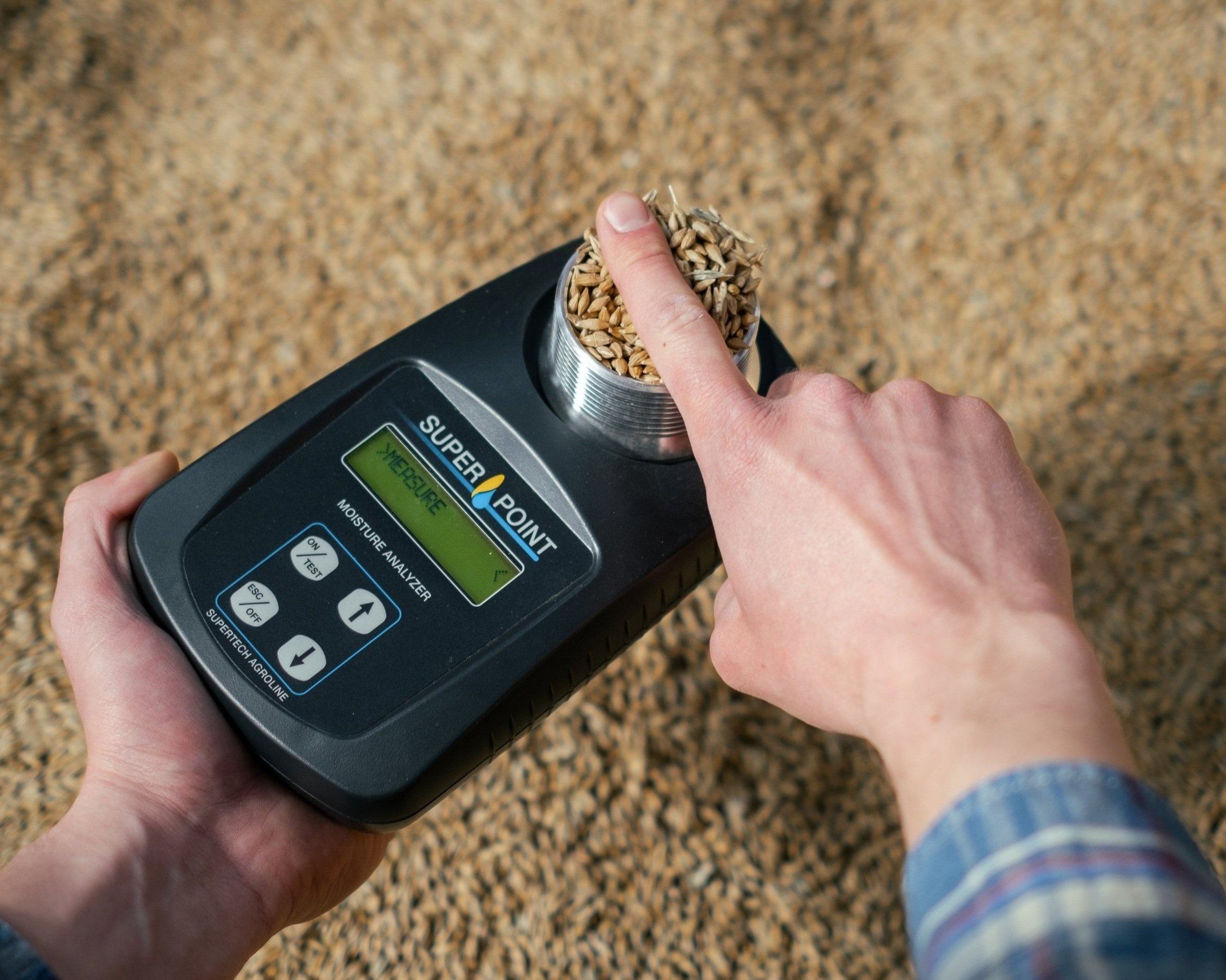How a Moisture Meter Can Improve Your Construction Jobs and Prevent Damage
The Ultimate Guide to Wetness Meters: A Comprehensive Overview and How They Can Save You Cash
Dampness meters serve as essential tools in identifying and keeping an eye on moisture content in materials, assisting in stopping costly problems and making sure the high quality of items. Comprehending the nuances of various kinds of wetness meters, their applications, and the prospective cost-saving benefits they provide can be a game-changer for businesses and professionals alike.
Kinds Of Moisture Meters
Different kinds of moisture meters are available for different applications in various markets. One usual kind is the pin-type moisture meter, which determines the electrical resistance between two pins placed into a material. This type is ideal for timber, drywall, and various other structure materials. Pinless dampness meters, on the other hand, usage electromagnetic sensing unit plates to scan a bigger location without causing damages to the product's surface area. Moisture Meter. These meters are ideal for swiftly assessing dampness levels in large areas such as floors and wall surfaces.

Moreover, there are likewise specialty wetness meters developed for specific products like soil, hay, or grain. These meters offer precise wetness readings tailored to the distinct properties of the material being tested. Infrared dampness meters measure the thermal properties of a material to determine its dampness web content non-invasively, making them useful for applications where pin or pinless meters may not be appropriate. Comprehending the various kinds of dampness meters available can assist industries choose the most ideal tool for their particular wetness measurement needs.

Benefits of Making Use Of Dampness Meters
Dampness meters supply important benefits in precisely keeping an eye on and assessing dampness levels in diverse products and atmospheres. One of the key advantages of making use of dampness meters is the avoidance of possible damage created by excess moisture.
Moreover, using wetness meters can lead to increased power performance. By identifying areas with high wetness degrees, such as leaks or inadequate insulation, adjustments can be made to boost power preservation and minimize energy costs. In agricultural setups, wetness meters play an important role in enhancing plant yields by allowing farmers to check soil moisture levels and make educated watering choices. Generally, the advantages of using dampness meters span across numerous sectors, providing cost-effective services and promoting far better high quality control techniques.
How to Choose the Right Moisture Meter
Selecting the appropriate moisture meter includes considering key factors such as material compatibility, dimension variety, and calibration precision. When selecting a dampness meter, it's essential to make certain that the meter appropriates for the certain material you will certainly be testing. Different products have varying electrical residential or commercial properties that can influence dampness analyses, so choosing a meter developed for your material is important for precise outcomes. In addition, take into consideration the measurement series of the moisture meter. Guarantee that the meter can anchor detect moisture levels within the range needed for your applications. Calibration accuracy is another critical variable to remember. Go with a wetness meter with dependable calibration to make certain constant and specific readings. Some meters might call for regular calibration adjustments, so recognizing the calibration procedure is very important. By carefully assessing these aspects, you can pick a dampness meter that fulfills your demands and supplies exact moisture measurements for your jobs.
Appropriate Strategies for Dampness Meter Usage

Expense Cost Savings With Wetness Meter Applications
How can the calculated utilization of moisture meters result in considerable price financial savings across different sectors? Moisture meters play a critical function in expense financial savings by avoiding possible damage and making sure quality assurance in different sectors. In the farming industry, dampness meters help in determining the optimum time for collecting crops, preventing over-drying or excess moisture that can influence the last item's high quality. This exact surveillance aids farmers prevent unnecessary losses and maximize their return.
Likewise, in building, moisture meters aid avoid pricey damages by spotting dampness levels in structure materials, such as timber or concrete, which can lead to structural concerns otherwise resolved quickly. By recognizing trouble areas early on, contractors can take restorative actions to stay clear of extensive repairs or replacements, inevitably saving money and time.
Moreover, in the food processing industry, dampness meters are essential for monitoring product quality and making sure compliance with safety and security guidelines. By properly gauging wetness material in more info here food items, suppliers can stop perishing, keep freshness, and decrease waste, leading to considerable expense financial savings. In general, the critical application of dampness meters is an important investment that can bring about considerable price reductions and boosted effectiveness across different industries.
Conclusion
In final thought, dampness meters are useful tools for determining and identifying moisture degrees in numerous products. By making use of the ideal wetness meter find more and adhering to correct strategies, users can effectively avoid costly damages caused by excess moisture.
Dampness meters offer as vital tools in discovering and keeping an eye on moisture web content in materials, helping in avoiding costly problems and ensuring the top quality of products. Infrared dampness meters measure the thermal residential or commercial properties of a product to identify its moisture material non-invasively, making them helpful for applications where pin or pinless meters might not be ideal.Wetness meters provide vital benefits in properly keeping track of and analyzing wetness degrees in diverse materials and environments. In agricultural setups, moisture meters play a vital role in optimizing plant returns by enabling farmers to monitor soil wetness levels and make educated watering choices.In final thought, dampness meters are beneficial devices for detecting and determining moisture levels in numerous products.